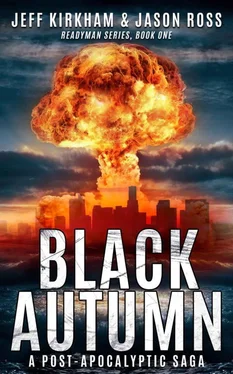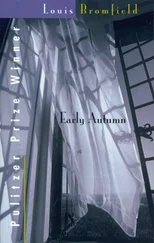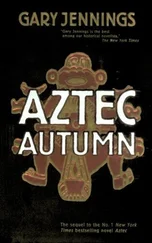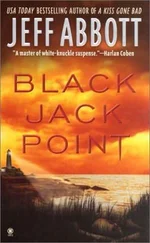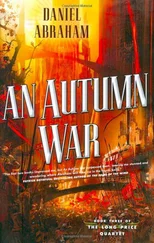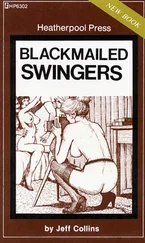“I am so sick of fighting death every day,” Jeff said, looking at his Afghani friend for the last time.
The Afghani barely understood his English, which was the only reason Jeff allowed himself to put words to his fatigue.
Wakiel nodded and returned to smoking his cigarette.
• • •
Bandar Charak
Hormozgan Province, Iran
Present Day
In the end, Afshin Asadi would explode a dirty bomb over Saudi Arabian soil, not because of his religion or his politics, but because he couldn’t stand to leave a project unfinished.
Somewhere in the back of his mind, the same place where he kept information on how to operate his microwave oven, Afshin knew he would go to paradise by sacrificing his life, if it came to that. He accepted the information without any particular interest.
Some might look at Afshin’s story and draw the conclusion he had been imprisoned by a cruel government, a regime that would shackle a mentally challenged, but genius young man to an ignorant religion. In their rush to repudiate Islam, they would miss the point.
Truth was, Afshin already lived in paradise, and his government was doing him a favor by confining him to a workshop with a prototype nuclear device. Every morning he awoke with a burning desire to move the project one step closer to completion, and every night he lay down deeply satisfied by the work he had completed. On any given day, he might have tested a candidate polystyrene as a suspension material, or machined a new trial shield panel. Each small step toward completion scratched an itch deep in his soul, and he went to sleep happy as a man could be—in his case, as happy as an autistic man could be.
Five years previously, as Afshin studied at Amirkabir University of Technology in Tehran, one of his professors had asked him to visit during office hours. When Afshin arrived at the meeting in his professor’s office—more a cubbyhole than an office—another man was wedged into a seat in the corner between piles of papers. The strange man wore a crumpled suit coat and a yellowing dress shirt. He was balding and peered over a pair of thick-framed glasses.
The stranger introduced himself, and Afshin failed to note his name, more interested in the big Western-made calculator poking out of the man’s shirt pocket. Calculator Man peppered Afshin with engineering and physics questions, beginning simple and moving toward more complex. Afshin answered plainly, without wondering for a single second about the purpose of the meeting.
More than a month later, the same man interrupted a Thermal Engineering lecture. The teacher’s aide pulled Afshin from class and Calculator Man showed him out the front door of the university to a waiting taxi. Afshin never saw the school, nor his family, again.
He might have enjoyed seeing his family, but he never requested it. Afshin feared interrupting the work, worried they might pull him off the intensely gratifying process of designing and building an entirely novel type of nuclear weapon. Nobody had ever exploded a dirty bomb before and the technical requirements for the explosive, and the radioactive shielding, ran deep into the speculative.
Afshin’s father had served in the Iran-Iraq War, and his mother was a nomadic Iranian exposed to “yellow rain” during the war. His mother died of bone cancer, and his father was revered by their town as a war hero, though it only seemed to matter during patriotic holidays.
Afshin had no assistants and almost no supervision. His food and support were provided by government people who appeared occasionally to make sure his tools ran properly and that he was alive and well. When he needed a new end mill or, on the rare occasion when he wanted a pornographic magazine, he placed the order. Nobody bothered him about the pornography, even though it was technically illegal in Iran. The Lebanese porno magazines simply showed up in the bottom of the next box of tooling and raw materials. But the work was almost always more satisfying than the porn, and he took little time off to masturbate.
One day, after five years of laboring over the Russian surplus strontium-90 thermal generator he had been provided as a source for radioactive material, Afshin looked down at his stainless steel workbench and beheld a completed, highly sophisticated dirty bomb. It was no larger than the mini-refrigerator where he kept his sodas, and it weighed just under ninety kilos. The radiation pouring off the casing measured barely more than exposure to the sun in the upper atmosphere.
Two days after completing his bomb, Afshin heard the buzz of a small aircraft taxiing outside. The sounds of small aircraft were commonplace, since his workshop and living quarters were located in an airplane hangar. But this airplane approached his building, heralding the coming of his boss, Calculator Man.
By now, Afshin knew the professor’s name: Ostãd Mumtãz Shahin Nazari. Professor Nazari had visited Afshin many times over the last years, receiving updates on progress and vetting Afshin’s data and material requests. Afshin assumed the professor held some rank in the science or military ministry, though Iranian state government interested Afshin about as much as women’s magazines which, was to say, not at all.
This visit was different from previous visits. For one thing, the bomb was complete. For another, Professor Nazari appeared to be dying. Afshin didn’t ask, but he guessed that cancer was consuming his supervisor. For two reasons, Afshin’s life was about to change, and that stressed him to distraction.
“ Salaam alaikum, ” the professor greeted him and took his hand. Afshin looked downward in a show of respect.
“ Salaam, Professor. I am finished.” Afshin continued to gaze at the concrete, uncomfortable with looking directly at other peoples’ faces.
“Yes, my young friend, you are.” The professor released Afshin’s hand and shuffled to the work table. “It is beautiful. Allahu Akbar.”
Afshin felt his face flush red with pleasure. Indeed, the device was beautiful and it was gratifying for the professor to say so. Afshin had nothing to say, so he remained silent.
“Are you prepared to test it?” the professor asked, caressing the aluminum casing.
“Yes, Jenaab.” Afshin applied the honorific, pleased to have his work acknowledged.
“Afshin, I feel I must tell you, what we are about to do is more than a test. It is a victory for Islam. We shall detonate the device on the Wahhabis and their American pipeline. As we kill the pipeline, we kill the link between the Americans and the Saudis, and we force Persia to finally take a stand. Our government has lost the will to act and, like during the war with Iraq, they hold back, afraid of the West. The Saudis push their Wahhabist agenda across the globe, building schools and mosques in every corner of Islam: Afghanistan, Pakistan, Russia, and even America itself. They are the true enemy, but our government refuses to strike. With this bomb, we shall force the ayatollahs to take up the sword Allah has given them. Then the Persian Empire can resume its rightful place. Will you give your life to that cause?”
Afshin understood every word. He was a genius, after all. At the same time, he couldn’t care less about religion or the Persian Empire. What he cared about, above all else, was seeing the device tested. He couldn’t continue living without seeing the bomb detonate. If he died in the process, that concerned him very little.
“Yes, Jenaab ,” Afshin answered.
“Good, my son. I do consider you my son.” The professor smiled. “I must also tell you this. The Guardian Council has not authorized this detonation. We will move forward without approval. My own time is at an end and I am afraid that, without me, our leaders will endlessly dither. We know the righteous path, you and I, and we must act for our country’s future. Do you agree, pesar ?”
Читать дальше
